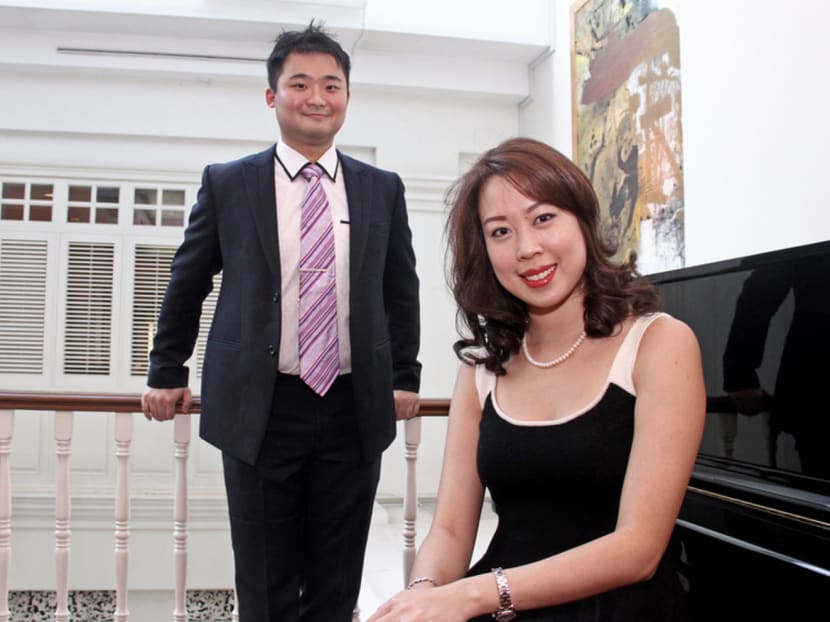Duke-NUS grads driven by desire to help others
SINGAPORE — When she was 30, Ms Olivia Tan was making good money from a successful financial career in a private-fund company, but longed for more meaning in her life.
SINGAPORE — When she was 30, Ms Olivia Tan was making good money from a successful financial career in a private-fund company, but longed for more meaning in her life.
She considered working at the United Nations, but soon realised that helping individuals face-to-face was what would fill the void. That, and the intellectual challenge of studying medicine prompted her to enrol in the Duke-NUS Graduate Medical School in 2011. “I just knew at that point that I had to make the shift ... After a while, the money gets too good and you can’t move anymore,” she said.
“Initially, I had big dreams, but now, what really drives me every morning is seeing those 10 patients a day and building one-on-one relationships.”
Ms Tan is part of Duke-NUS’ fifth class of Doctor of Medicine (MD) graduates. A total of 49 MD graduates, one MD/PhD graduate and eight PhD graduates have their graduation ceremony today. Of the MD graduates, 19 came from non-science backgrounds such as engineering and economics.
Transitioning back to school was “very, very tough”, Ms Tan admitted. Friends and family were worried that she would find the sciences — and a major loss of income — difficult because of her non-science background.
The real challenge, however, came from feeling less independent, like a less “productive member of society”, as a student. “At 30, it sort of eats into your identity,” she said. Still, studying medicine has been worthwhile for her.
Her consultancy background led her to do health services and systems research. Working under Dr Terrance Chua, medical director at National Heart Centre, she studied ways to reduce waiting times for patients with chest pain. Said Ms Tan, who will be doing an internal (medicine) residency at SingHealth: “When I was in consulting, sometimes, we’d come up with strategies that don’t get implemented as we don’t have the buy-in. Now, things actually happen and change.”
For Mr Nicodemus Oey, 27, it was his interest in research and patient care that led him to pursue an MD and PhD. He is the first to graduate from the MD/PhD programme at Duke-NUS, completing it in seven years.
“I recognise that medicine can’t exist without its foundations, which is biology. We can’t improve on medicine if we can’t improve on our knowledge of how medicine works, and that is through research,” he said.
At Duke-NUS, he embarked on research projects related to mental diseases. For example, he is studying electroconvulsive therapy for depression and a new biomarker to track the progression of Alzheimer’s with magnetic resonance imaging scans.
It was when his late grand-uncle got early-onset Alzheimer’s that Mr Oey witnessed first-hand the impact of mental disease, which made him want to contribute to research. “I saw how he went from a completely lucid, very intelligent person whom I could hold a deep conversation with to someone who could barely recognise his wife.”
After graduation, he will complete his training in clinical medicine at Singapore General Hospital while continuing his research projects. Mr Oey, who studied molecular biology and French linguistics for his undergraduate degree, quipped: “In my undergraduate years, I was translating French to English. Now, I’m trying to translate basic science into patient care.”







